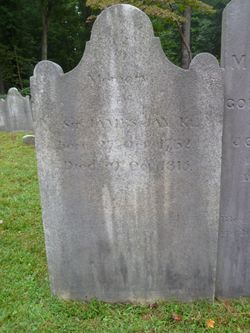Sir James Jay (1732–1815) was an American physician and politician. He was brother of John Jay, one of the Founding Fathers of the United States. While initially a supporter of American independence, he later changed his views becoming a Loyalist and went into exile in London after the Treaty of Paris recognized independence.
Medicine and Education
He was born in New York City, studied medicine, and became a practicing physician.
He was instrumental in obtaining the endowments for Benjamin Franklin's projected college (now the University of Pennsylvania) in Philadelphia (with William Smith, 1755) and King's (now Columbia) College, New York. For the purpose of soliciting contributions for the latter college, he visited England in 1762, where he was knighted by the king, George III, in 1763.
His writings include two pamphlets relating to the collections made for the colleges in America (1771 and 1774) and Reflections and Observations on the Gout (1772).
During the Revolutionary War, founding father John Jay's brother, Sir James Jay, invented a method for the Patriots to communicate with each other that could not be intercepted by the British. Washington called Jay's invention "sympathetic stain" or "white ink." We would call it invisible ink invented November 29, 1775.
Politics
Jay sat as a member of the New York legislature during the early years of the American War of Independence where he was a supporter of independence. He actively promoted the Bill of Attainder and Confiscation which the legislature
passed on 22 October 1779 directed at 59 loyalists. This bill was an anathema to Jay's brother John who saw it as persecuting people for their opinions.
In 1782, James connived to get himself arrested by the British so he could present a plan of reconciliation with Great Britain, as he was very suspicious of the French. He was treated as a spy, and imprisoned. Guy Carleton released
him and allowed him to go to England. This led to suspicions about his loyalties among the revolutionaries.
In a letter to Peter Van Schaak of 17 September 1782, John stated that "If after making so much bustle in and for America, he has, as it is surmised, improperly made his peace with Britain, I shall endeavor to forget that my father has such a son." In 1813, James presented a "Narrative" to Congress which insisted that in Europe he worked to implement plans to attack British commerce and ports.
After the Revolution, the brothers had little contact with one another.
Sir James Jay (1732–1815) was an American physician and politician. He was brother of John Jay, one of the Founding Fathers of the United States. While initially a supporter of American independence, he later changed his views becoming a Loyalist and went into exile in London after the Treaty of Paris recognized independence.
Medicine and Education
He was born in New York City, studied medicine, and became a practicing physician.
He was instrumental in obtaining the endowments for Benjamin Franklin's projected college (now the University of Pennsylvania) in Philadelphia (with William Smith, 1755) and King's (now Columbia) College, New York. For the purpose of soliciting contributions for the latter college, he visited England in 1762, where he was knighted by the king, George III, in 1763.
His writings include two pamphlets relating to the collections made for the colleges in America (1771 and 1774) and Reflections and Observations on the Gout (1772).
During the Revolutionary War, founding father John Jay's brother, Sir James Jay, invented a method for the Patriots to communicate with each other that could not be intercepted by the British. Washington called Jay's invention "sympathetic stain" or "white ink." We would call it invisible ink invented November 29, 1775.
Politics
Jay sat as a member of the New York legislature during the early years of the American War of Independence where he was a supporter of independence. He actively promoted the Bill of Attainder and Confiscation which the legislature
passed on 22 October 1779 directed at 59 loyalists. This bill was an anathema to Jay's brother John who saw it as persecuting people for their opinions.
In 1782, James connived to get himself arrested by the British so he could present a plan of reconciliation with Great Britain, as he was very suspicious of the French. He was treated as a spy, and imprisoned. Guy Carleton released
him and allowed him to go to England. This led to suspicions about his loyalties among the revolutionaries.
In a letter to Peter Van Schaak of 17 September 1782, John stated that "If after making so much bustle in and for America, he has, as it is surmised, improperly made his peace with Britain, I shall endeavor to forget that my father has such a son." In 1813, James presented a "Narrative" to Congress which insisted that in Europe he worked to implement plans to attack British commerce and ports.
After the Revolution, the brothers had little contact with one another.
Family Members
Advertisement
Records on Ancestry
Sponsored by Ancestry
Advertisement





